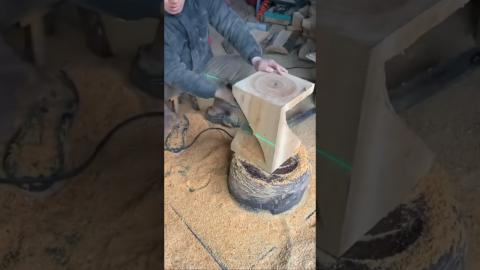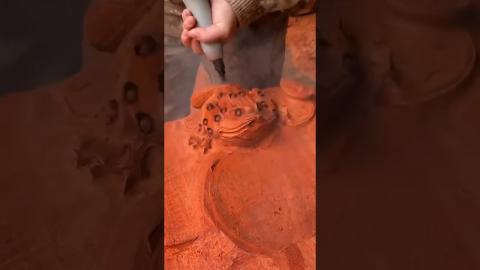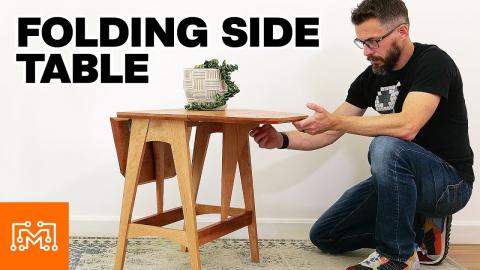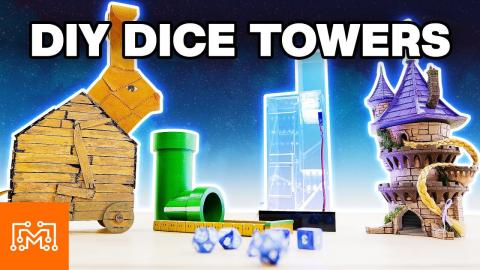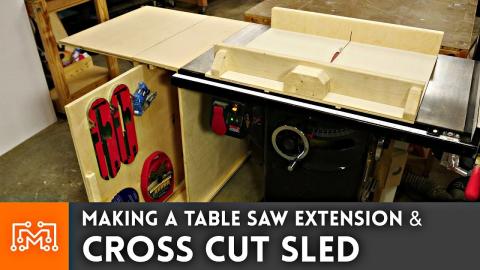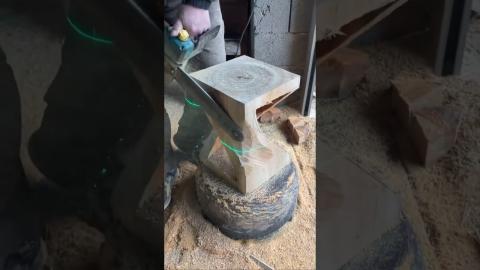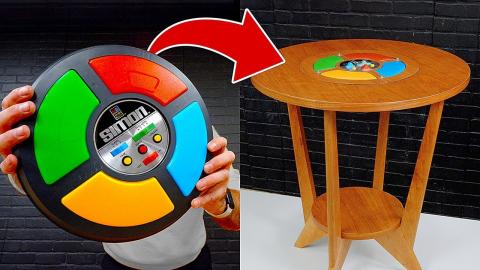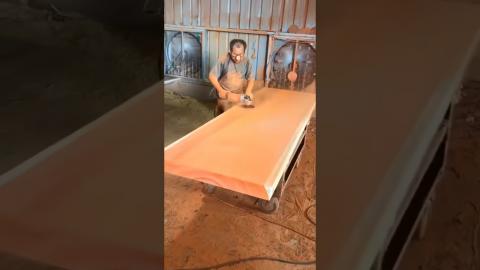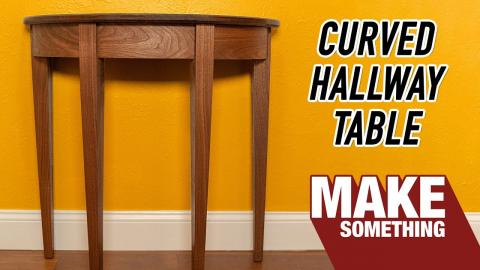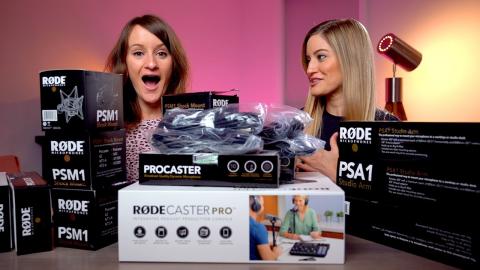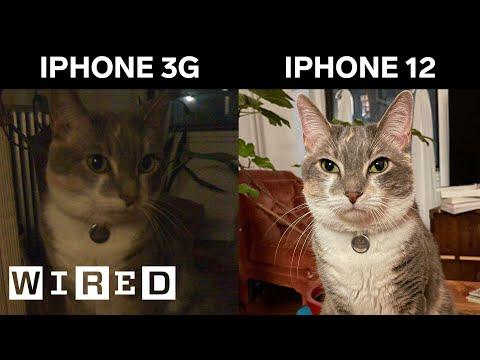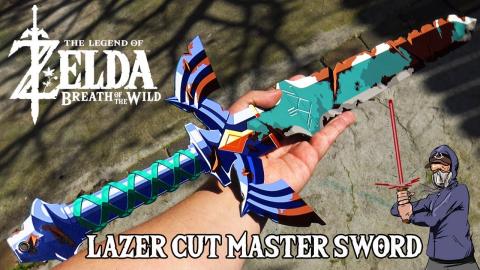Making a Work Table For Our Podcast Setup
Description
We used to record No Instructions Podcast on my DIY Ping Pong Table, but now we made a new work table for our podcast studio setup! Thanks to Skillshare for sponsoring this video! You can get 2 months for free by visiting https://skl.sh/iliketomakestuff3
DIY PING PONG TABLE WITH EVAN & KATELYN: https://youtu.be/rzVJrBOsf0M
Subscribe to my channel: http://bit.ly/1k8msFr
Second Channel: http://bit.ly/iltms-2
MORE PROJECTS, POSTS AND EVENTS
http://www.iliketomakestuff.com
TOOLS & SUPPLIES WE USED(affiliate links):
https://kit.co/iliketomakestuff/podcast-setup
https://kit.co/iliketomakestuff/my-woodworking-tools
https://kit.co/iliketomakestuff/my-metalworking-tools
https://kit.co/iliketomakestuff/shop-safety-gear
I WROTE A BOOK!!
http://www.iliketomakestuff.com/makingtime
Want to support ILTMS? Get exclusive content and more...
http://www.iliketomakestuff.com/patreon
BUY A SHIRT, STICKER, NOTEBOOK, DIGITAL PLANS and MORE!!
http://www.iliketomakestuff.com/store
FOLLOW:
http://twitter.com/iliketomakestuf
http://www.twitch.tv/iliketomakestuff
http://instagram.com/iliketomakestuff
http://facebook.com/iltms
MUSIC: http://share.epidemicsound.com/iltms
When designing the new studio table, I wanted it to do a couple of things. First, it had to be tall enough to sit at comfortably with counter-top height stools. Second, it had to also function as a standing desk. Because this new studio table was primarily going to be used to record the No Instructions Podcast that Josh and I make, it had to have enough space for our LEGO and model projects that we build during our conversation, as well as have room for more people when we have guests. I decided that a steel frame would be most appropriate for a table this long, so Josh went to the steel yard and pick some up.
The guys at the steel yard were super cool and cut the pieces we needed to length. I used my MIG welder to fix the frame pieces together and ground the welds to make a flat, seamless structure. We wanted to make sure that the table could move around if we needed to use the space, so I welded on some Harbor Freight castors to each corner. The steel frame was almost done. I needed to add some tabs to the inside edges and act as mounting points for the MDF panels we added later. I also drilled some holes in the underside of the top frame so that I could attache the table top later. After a quick coat of white enamel paint, the frame was done.
I've made tables before, Josh has made tables before, so this project wasn't an exercise in table making. We agreed that a butcher block top would look amazing and to cut, plane, and laminate a surface large enough for this table would take a while and cost a lot. And since we don't really have a hardwood dealer around, purchasing material suitable for such a table would be really difficult. So we went to Lowe's. Most big-box stores have pre-made butcher block counter top slabs available (even IKEA has some!). I found one that worked perfectly for the frame depth, but was a little longer than we needed. I trimmed the butcher block to length and could use the rest as a nice cutting board. I applied some polycrylic finish to both sides and it was really to mount to the frame.
The new studio table was completely functional at this point. The beautiful butcher block was mounted to a white, rolling steel frame. Of course we had to do something more to it. We wanted to make some custom MDF panels that would hide our legs when looking straight at the table. I cut some smaller side panels while Josh figured out how to CNC a nice design into the larger front panel. Using our large Avid CNC, he took a design that Forby created and did two separate cut paths to make the large grid of circuits.
I used some black spray paint to coat the recessed circuits and then rolled over the face of the panels with a grey paint. This method let the cut areas keep their black color while the face was another. We set the panels in place up against the steel tabs we made earlier, and used some very small screws to fix them in place. Josh added some storage hooks to the inside of the panels so we could store our microphones and cables when we weren't recording. The whole setup works perfectly!
This steel framed, butcher block table could be an amazing solution in many different circumstances. It could be a mobile kitchen island, a crafting table, or a work surface in your shop. This project required super basic welding and woodworking skills, you don't need to use a CNC at all. It makes a huge impact on the new space and didn't take that long to make. I hope you can find an area in your life that a setup like this would help, and go get started making one.


